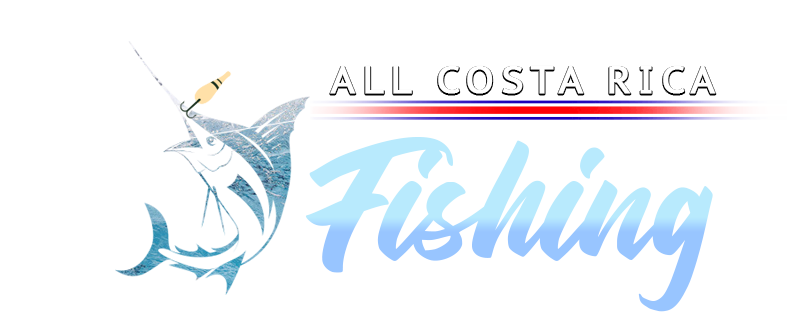
Common Mistakes When Sport fishing in Costa Rica
If you’re planning a fishing vacation, hopefully you already know the basics of sport fishing and the most common mistakes to avoid.
However, if you don’t have much experience in sport fishing, it can be easy to make some rookie mistakes that can cost both time and money during your trip.
To help ensure your fishing vacation is successful and enjoyable, here are some of the most common mistakes people make when sport fishing—and how to avoid them.
1. Not being prepared for bad weather:
Weather is one of the biggest factors when it comes to sport fishing trips.
When planning a fishing vacation, always check the forecast beforehand and plan accordingly.
Make sure you bring plenty of rain gear, warm clothing (depending on the time of year) and any other supplies you may need in case of inclement weather.
Making sure you’re prepared for Costa Rica’s weather is essential to a successful fishing trip.
Costa Rica’s climate is tropical, so it can be hot and humid throughout the year with plenty of rain.
The rainy season generally takes place from May to November, while the dry season is from December to April.
During the rainy season, rainfall can range from occasional showers to heavy downpours.
This means you need to bring waterproof clothing and gear such as rain jackets, boots and umbrellas if you plan on fishing during this time of year.
You’ll also want to have plenty of sunscreen, hats and other protective clothing in order to protect yourself from direct sun exposure.
Additionally, it’s important that you pack a variety of snacks and drinks for long days spent fishing in Costa Rica, which can help keep your energy levels up and avoid dehydration.
Taking these precautions will help ensure that your sport fishing vacation in Costa Rica runs smoothly!
2. Not being familiar with local regulations:
Before setting out to sea, always make sure you know what the local fishing rules and regulations are.
This will help ensure that you don’t get fined or your catch taken away if it’s over the legal limit.
Costa Rica has some of the strictest regulations for sport fishing in the world, ensuring that its pristine waters remain abundant with fish species and healthy ecosystems.
For example, it is illegal to catch or keep any of the four species of billfish (marlin, sailfish, spearfish, or swordfish) without a permit from the Costa Rican government.
Additionally, there are limits to the size and number of other fish species one can catch and keep.
Take mahi-mahi as an example: anglers can only keep up to three mahi-mahi per boat, with a minimum size limit of 20 inches.
All caught fish must also be reported when returning to shore in order to prevent illegal activities like poaching or overfishing.
For added protection, marine protected areas are spread throughout Costa Rican waters which prohibit all fishing activity within their boundaries.
These areas help sustain fish populations and coral reef systems by allowing them to reproduce and grow free from human interference.
The main goal behind these regulations is not only conservation but also sustainability; by preventing overfishing and preserving biodiversity in Costa Rican waters, tourists will be able to continue enjoying incredible fishing experiences for years to come!
3. Not researching potential destinations:
Researching potential vacation spots is key when planning a fishing trip.
Talk to friends who have been there before, look up reviews online, and read up on different fishing spots so you know where to go to maximize your chances of catching fish.
Costa Rica is a great destination for sport fishing vacations, as it offers plenty of beautiful spots to fish and some of the best deep sea fishing in the world.
Sports fishing in Costa Rica is an unforgettable experience.
With its picturesque landscape and abundance of marine life, Costa Rica boasts some of the best deep-sea fishing in the world.
Whether you’re looking for marlin, tuna, mahi-mahi, or wahoo, there are plenty of opportunities to reel in a big catch.
Costa Rica has many popular sport fishing destinations including Los Suenos Marina on the central Pacific coast and Tamarindo Bay on the northwestern Guanacaste province.
Both offer excellent deep-sea fishing conditions year round for those seeking a thrill and adventure. In addition to these two premier spots, other popular areas include Papagayo Gulf (near Liberia) and Quepos (on the central Pacific coast).
If you’re heading out to sea with your own boat or chartering one from a local operator, be sure to check local regulations before setting out.
Costa Rica has strict laws regarding sport fishing that must be followed at all times; size limits and bag limits are strictly enforced and caught fish must be reported when returning to shore.
Additionally, there are several marine protected areas spread throughout Costa Rican waters which prohibit all fishing activity within their boundaries – it’s important to know where they are before you go!
For those looking for an unforgettable experience – complete with breathtaking scenery and a chance at reeling in that trophy catch – sport fishing trips in Costa Rica can’t be beat.
From its crystal clear waters and plentiful marine life to its easy accessibility and wide range of accommodations, it’s no wonder why so many anglers flock here every year!
4. Not having the right equipment:
Having the proper gear is essential when it comes to sport fishing.
Make sure you have all the necessary equipment, such as rods, reels, bait, tackle boxes, lures and more before heading out on your trip.
Additionally, having a reliable boat is also key—if you don’t own one yourself, you may want to consider renting one while on vacation.
Sports fishing in Costa Rica is a true adventure, and having the right equipment makes all the difference.
When heading out to sea, it’s important to have a reliable boat and all the necessary gear such as rods, reels, bait, tackle boxes, lures and more. If you don’t own your own boat or yacht, consider renting one while on vacation.
Costa Rica is known for its crystal clear waters, so having polarized sunglasses can help you spot fish just beneath the surface.
Depending on what you plan on targeting – fish such as marlin, tuna, mahi-mahi or wahoo – make sure you have the correct type of tackle for your target species.
You should also bring along plenty of extra line and hooks in case of breakage or loss.
When it comes to lures and other artificial baits like jigs and plugs, choosing something that matches local baitfish will help increase your chances of success.
In Costa Rica for instance, small yellow-colored jigs are especially effective for catching pelagic species such as mackerels and snappers.
For inshore angling near reefs or mangroves try using live bait like shrimp or squid – they tend to be irresistible to predators!
Finally don’t forget about safety equipment – lifejackets are recommended at all times when fishing from a boat in Costa Rican waters.
Having a first aid kit on board is always a good idea too; this could prove invaluable if an accident occurs while out on the water.
With the right preparation in place before heading out to sea – coupled with common sense and local regulations – sport fishing vacations in Costa Rica can be truly unforgettable experiences!
5. Not bringing enough food and drinks:
When going out for a long day of sport fishing, always bring plenty of snacks and beverages with you. This will ensure that everyone stays happy and hydrated during the trip.
When planning a sport fishing trip in Costa Rica, it’s important to make sure that you have enough food and drinks on board.
Whether you’re out for just a few hours or multiple days, having the right provisions can mean the difference between success and failure.
Bringing along plenty of snacks and beverages is essential; protein bars, trail mix, jerky and sandwiches are all great options to keep your energy levels up while out on the open sea.
For drinks, make sure to pack plenty of water but also consider bringing along some sports drinks as well as beer or soda for those looking for something more refreshing.
If possible, bring a cooler onboard so that you can store perishables like fruits and sandwiches.
If you’d rather not lug around snacks and drinks yourself, many of the local sport fishing charter companies offer food packages with your booking – this usually includes breakfast, lunch and dinner along with non-alcoholic beverages such as water and juice.
Do some research before booking to see what kind of food packages are available with each charter company – most will provide traditional Costa Rican cuisine such as arroz con pollo (rice with chicken) or grilled fish tacos.
Finally, don’t forget about any special dietary restrictions or allergies you may have – be sure to let your captain know ahead of time so he can take the necessary precautions when preparing meals onboard.
With the right provisioning strategy in place before heading out to sea – coupled with common sense – sport fishing trips in Costa Rica can truly be unforgettable experiences!
By being aware of these common mistakes, you can ensure your fishing vacation is a success!
With the right preparation and research, you’ll be set for an amazing sport fishing experience—especially if you choose to take your trip in Costa Rica.
With beautiful beaches, stunning landscapes and some of the best deep sea fishing in the world, Costa Rica is the ideal destination for any fisherman looking for a great time.
Happy fishing!
